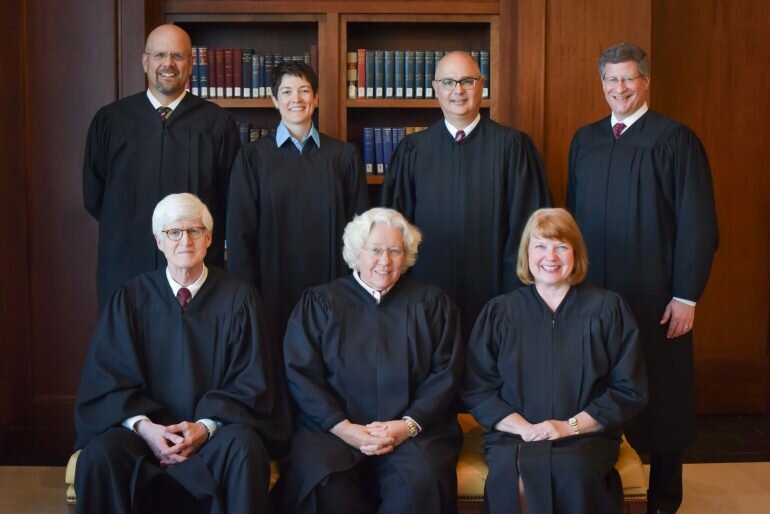Ethics Watch’s years of experience using legal tools to enforce accountability have taught us that legal action alone is not always enough – sometimes the laws themselves need to be changed. During the 2016 legislative session, we worked to craft and support legislation in all three core areas of our work: government ethics, money in politics, and public records transparency. Of the five bills we prioritized this year, two passed and are awaiting the Governor’s signature, while the other three were killed in the Senate State Affairs Committee on party-line votes.
The majority of the bills we championed this session had supporters from across the political spectrum and many had bipartisan legislator teams as sponsors. So why the differing results? It seems this year’s general assembly was more willing to pass good government measures only when they affect other people but refused to advance measures that would affect the accountability of legislators themselves.
Transparency wins for Colorado voters in some arenas
The two bills which passed this year both targeted transparency of political spending outside of the context of legislative races: school board elections and ballot measures.
Our major win for Colorado voters this year was the passage of HB16-1282 (Align Regular Biennial School Elections & Fair Campaign Practices Act). Building off our work tracing, tracking and charting the spending in 2015 school board elections, we worked to eliminate loopholes in campaign finance disclosure law which previously allowed political ads regarding school board candidates to remain hidden from the public record. The bill also increases the frequency of reporting for state-wide political committees and other political players who spend money in school board elections in order to provide that information to voters before they cast their ballots (instead of months after the election). Bipartisan sponsors (Reps. Becker & Pettersen/Sens. Todd & Tate) and support from the Secretary of State led to unanimous passage of this bill in both chambers. These changes are a major improvement in Colorado and will provide needed transparency in school board elections for 2017 and beyond.
We also supported SB16-186 (Small-Scale Issue Committees) which passed this year. This bill was crafted as a response to the 10th Circuit Court of Appeals decision in CSG v. Williams holding that the $200 threshold for ballot issue committee registration and reporting was unconstitutional as applied in certain circumstances (Ethics Watch was an amicus in the case supporting the Secretary of State’s defense of the law). We worked with Colorado Common Cause and the Secretary of State’s office to create a two-tiered reporting scheme in the law for those supporting and opposing ballot issues as a temporary fix while the State sought review of the case from the U.S. Supreme Court. Bipartisan sponsors (Sen. Tate/Rep. Lontine) helped pass the fix through both chambers after the court case was decided during session. This measure avoids a complete free-for-all of undisclosed and untraceable political spending when Colorado voters consider a number of state-wide ballot measures this year.
Accountability fails when including legislative branch in its scope
Three bills supported by Ethics Watch and other coalition partners would have increased transparency and accountability across the state government, including the legislative branch. Each of these bills were killed in the Senate State Affairs committee, even when supported by bipartisan coalitions.
Our biggest disappointment was the failure of the General Assembly to support the independence of the Independent Ethics Commission, which has jurisdiction over legislators, in HB16-1216 (Facilitate Administration of IEC). The centerpiece of this bill was to remove the Attorney General’s office from providing legal counsel to the IEC and instead authorize and fund a separate, independent, in-house attorney for the IEC to support its mission as ethics arbiter for all state government. Legislative sponsors (Rep. McCann/Sen. Steadman) worked with stakeholders across the political spectrum and both the Secretary of State and Attorney General offices testified in support of the bill. Nevertheless, after passing the Colorado House, the bill was killed without explanation on a party-line vote in Senate committee.
A similar fate was met by SB16-37 (Public Access to Digitally Stored Data under CORA). Ethics Watch was part of a group of stakeholders who worked with the legislative sponsors (Sen. Kefalas/Rep. Pabon) to address the problem of government agents refusing to provide digitally stored documents and data in electronic form when processing Colorado Open Records Act requests. As we highlighted in our 21st Century Sunshine report, CORA provisions are in desperate need of updating to reflect the modern technological age of public record generation and storage. Despite testimony from a range of organizations across the political spectrum in favor of the bill, it was killed in its first committee hearing in the Senate, where legislators stated concerns about how the bill would affect CORA requests on legislators. We will participate in an official working group convened by the Secretary of State’s office this summer to craft solutions to this problem for future legislation.
Finally, our attempt to prevent a minor loophole in campaign finance public disclosure from becoming a major problem was stymied when HB16-1343 (Disclosure of Party Communication Activity) was killed in Senate State Affairs Committee. This bill would have required public disclosure and “paid for by” statements for ads that are run in the final weeks of an election to support or oppose a political party or candidates from one political party and spending at any time of the year that urges the viewer to vote for or against candidates from a particular political party. The wording of current law in Colorado only triggers these transparency requirements when a specific candidate is named, thereby creating a loophole for groups wishing to remain in the shadows while trying to influence voters to vote for one party’s ticket. Legislative sponsors (Reps. Kagan & Becker/Sen. Carroll) passed the bill through the Colorado House, but the Senate State Affairs Committee killed it on a party-line vote without much discussion.
The reluctance of the General Assembly to pass legislation that increases the transparency and accountability of the legislative branch operations and campaigns to the voters is troubling. This is the reason why many ethics, money in politics and sunshine laws are passed directly by the people through ballot measures.




